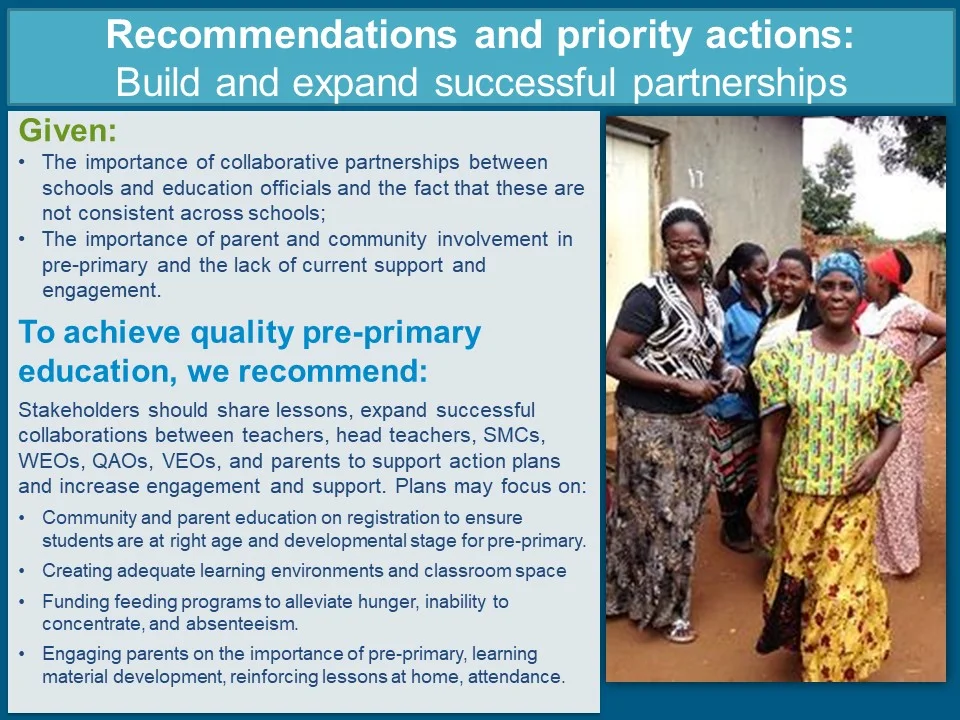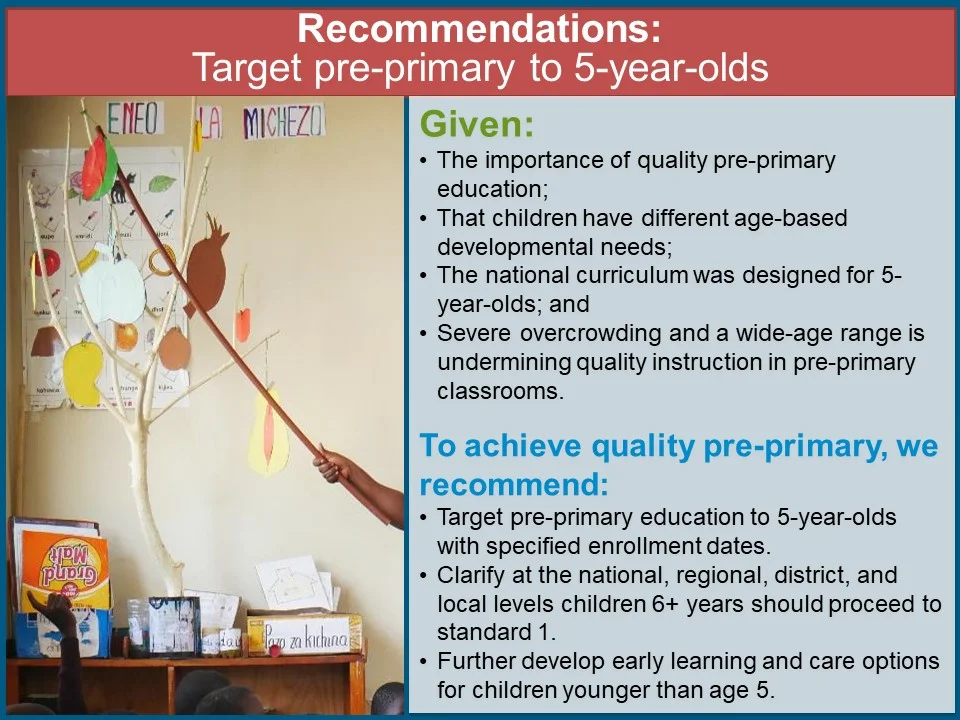Given study findings, we urge the Government of Tanzania, and education officials at the regional, district, ward, and school level prioritize actions to improve pre-primary quality. To achieve quality pre-primary education, we recommend the following priorities:
• Prioritize continuous teacher training and mentoring using FkW model components. Given teachers’ success in implementing the FkW model including demonstrating improved instructional strategies, lesson planning, classroom management, child centered learning approaches, and the use of learning areas and materials: We recommend the GoT prioritizes and funds continuously training teachers on approaches as part of School Based-Continuous Professional Development (SB-CPD) In-Service Training Modules (INSET). At the district, ward, and school levels, we recommend that officials prioritize and plan for continuous knowledge transfer, setting up communities of practice, and promoting ongoing professional development
• Prioritize reducing the teacher shortage. Given the extreme contextual challenges, the teacher shortage (1:215 PTR in 2018) and hiring freeze, and that teachers have insufficient mentoring and support: We recommend that the GoT takes immediate action to relieve the teacher shortage by recruiting and placing qualified teachers. We recommend the government avoid moving untrained secondary teachers given respondents’ reports that these teachers do not have adequate instructional practices for young children. Rather officials should ensure all new pre-primary teachers are adequately trained and can demonstrate appropriate instructional practices for pre-primary students. At the district, ward, and school levels, we recommend identifying co-teachers to free time for lesson planning, implementation and individual student support. We also recommend reducing the teacher workload to enable pre-primary teachers to focus on one grade. Officials should also organize and build communities of support and identify master trained teachers, head teachers, WEOs, QAOs to mentor.
· Prioritize funding pre-primary. Given the extreme lack of resources for pre-primary education and the fact that pre-primary students are not yet included in capitation grants: We recommend that the GoT prioritize timely inclusion of pre-primary students in capitation grants so resources can be allocated to learning areas and materials, building safe classrooms with adequate space, and other infrastructure. Pre-primary needs its own unique item line in the national and school budgets.
· Prioritize collaborations and community engagement. Education officials and schools should work closely to educate communities on the need for contributions for infrastructure, materials, and feeding programs. We recommend that stakeholders at the district, ward, and school levels should share lessons, build and expand successful collaborations among teachers, head teachers, SMCs, WEOs, QAOs, VEOs, and parents. Collaborations may focus on creating securing classroom space, funding feeding programs (to alleviate hunger, inability to concentrate, and absenteeism), engaging parents on the importance of pre-primary education, learning material development, reinforcing lessons at home, improving attendance; and community education and parent communication on registering students at the right age and developmental stage for pre-primary.








